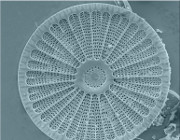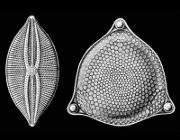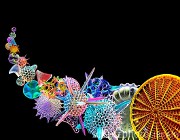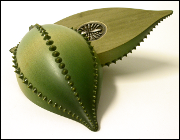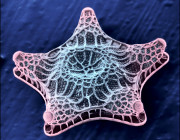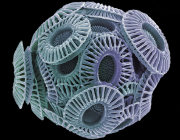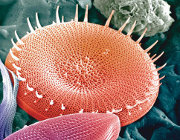Home :: List of Publicly Available Datasets :: Heterosigma akashiwo CCMP 452
Heterosigma akashiwo CCMP 452
Downloads:
| Principle Investigator(s) | Rose Ann Cattolico |
|---|---|
| External sample ID | Cyst formation: vegetative phase hr 6 day 0 |
| NCGR Sample ID | MMETSP0894_2 |
| Sample accession number | CAM_SMPL_002722 |
| Assembly accession number | CAM_ASM_000540 |
| Combined Assembly Name | Heterosigma-akashiwo-CCMP452 |
| Genus | Heterosigma |
| Species | akashiwo |
| Strain | CCMP 452 |
| Clonal | No |
| Axenic | Yes |
| Prelim. NCBI Taxon ID | 536046 |
| 18S rRNA | |
| Importance of organism and transcriptomes | The Heterosigma akashiwo strain CCMP 452 was initially isolated in Conover Maine (1952). This ~10 um alga rapidly divides as a vegetative cell and can form overwintering cysts that initiate massive, destructive blooms that impact eco-cohort survival at every trophic level. H. akashiwo is found in temperate and sub-tropical waters world-wide and often serves as the primary producer in coastal ecosystems. Intense studies of H. akashiwo for at least 40 years have generated a huge literature concerning the physiology, biochemistry and molecular biology of this organism. |
| Additional citations and references | DOI: 10.1021/bi00527a023, DOI: 10.1127/1438-9134/2010/0136-0261, PMID: PMC1185438, PMID: PMC2410131, DOI: 10.1046/j.1529-8817.2002.0187.x, PMID: PMC297543, PMID: PMC1074857, PMID: PMC386978, PMID: PMC1056607 |
| Environmental Data | |
| Primary citation for organism's characterization, if available | PMID: PMC542060 |
| Latitude | 41 |
| Longitude | -73 |
| Collection date | 01-JAN-52 |
| Sample collection site | Long Island Sound |
| Sample material (e.g. "seawater," "sediment," etc.) | Seawater |
| ENVO term for habitat - primary term | Acquatic: marine |
| Habitat | marine habitat |
| Country | UNITED STATES |
| Experimental Data | |
| Date of experiment | 31-MAY-11 |
| Growth medium | O-3 Medium doi:10.1016/0003-2697(78)90546-8 |
| Temperature (ºC) | 20 |
| Salinty (psu) | 30 |
| pH | 8.3 |
| Light (µmol photons / m2 / sec) | 40 |
| Day portion of day:night cycle in hours | 12 |
| Night portion of day:night cycle in hours | 12 |
| Nitrate (μmol/L) | 7520 |
| Ammonium (μmol/L) | 179 |
| Phosphate (μmol/L) | 365 |
| Total Fe (nmol/L) | 7240000 |
| Trace elements (total) (nmol/L) | 12800000 |
| Investigation type | Eukaryotes |
| Other experimental metadata available | 60 rpm agitation |

